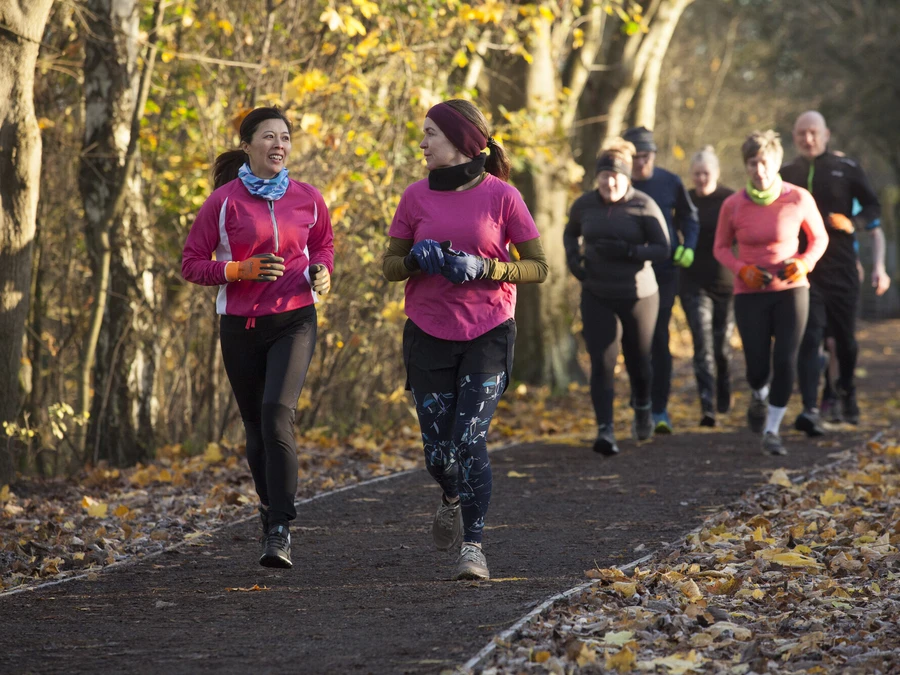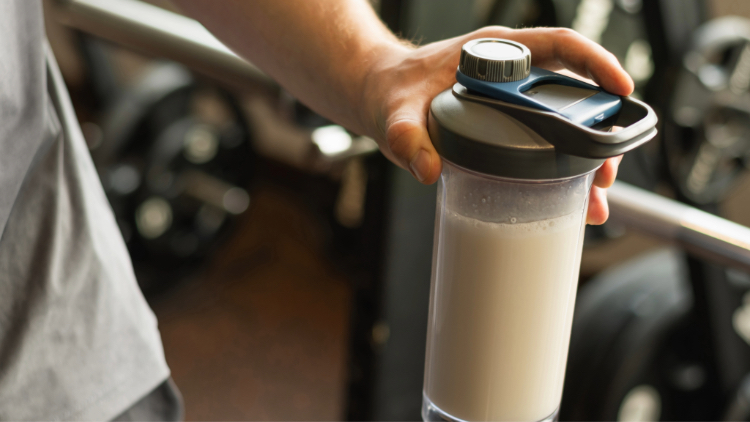
As the crisp air of fall sets in and days grow shorter, many of us find our energy dipping just when we need it most. But fear not! This season doesn’t have to leave you feeling sluggish or uninspired. Instead, it can be a time to rejuvenate your spirit and boost your energy levels with just a few simple changes. From adjusting your daily habits to embracing the natural rhythms of autumn, you'll discover that maintaining vitality during these shorter days can be both effortless and enjoyable. In this article, we’ll explore 10 simple ways to ignite your energy—all while savoring the unique beauty and coziness that fall brings. Say goodbye to the sluggishness and hello to revitalized energy as you embark on this colorful season!

As the days grow shorter, the amount of natural light we are exposed to diminishes, which can significantly affect our energy levels and mood. One of the simplest and most effective ways to boost your energy during fall is to start your day with natural light exposure. When you wake up, make it a habit to open your curtains and let the morning light flood into your room. This small act can help reset your circadian rhythm, signaling to your body that it’s time to wake up and be alert.
If you have the time, take a short walk outside in the morning. Even a brief stroll can expose you to enough natural light to make a difference. Morning light is particularly beneficial because it helps regulate the production of melatonin, the hormone that controls your sleep-wake cycle. By getting outside early in the day, you can help ensure that your body knows when it’s time to be awake and when it’s time to wind down.
For those who find it difficult to spend time outside in the mornings, consider investing in a light therapy box. These devices mimic natural sunlight and can be particularly useful for people who experience Seasonal Affective Disorder (SAD) or other forms of seasonal depression. Place the light box on your desk or in your kitchen and use it for about 20 to 30 minutes each morning. This can help elevate your mood and energy levels throughout the day. And since less daylight also reduces the body’s natural vitamin D production, consider starting a daily vitamin D supplement to support both your energy and overall wellness during the darker months.
Breakfast is often hailed as the most important meal of the day, and for good reason. What you eat in the morning sets the tone for your energy levels and metabolism throughout the day. To combat the sluggishness that often accompanies shorter days, opt for a protein-packed breakfast. Protein is essential for maintaining stable blood sugar levels and providing sustained energy.
Eggs are an excellent source of protein and can be prepared in numerous ways to keep your breakfast interesting. Whether you prefer them scrambled, poached, or in an omelet, eggs provide a hearty start to your day. Pair them with whole-grain toast and some avocado for a balanced meal that will keep you full and energized.
If you’re not a fan of eggs, there are plenty of other protein-rich options to consider. Greek yogurt topped with nuts and berries is a quick and nutritious choice. Smoothies made with protein powder, spinach, and your favorite fruits can also provide a substantial energy boost. The key is to avoid sugary cereals and pastries, which can cause a spike in blood sugar followed by a crash, leaving you feeling tired and lethargic.

Hydration is often overlooked but is crucial for maintaining energy levels and overall health. Dehydration can lead to fatigue, difficulty concentrating, and even mood swings. As the weather cools down, you might not feel as thirsty as you do in the summer, but it's important to continue drinking plenty of water.
Start your day with a glass of water to kickstart your hydration. Throughout the day, keep a water bottle nearby and take small sips regularly. If you find plain water unappealing, try adding a slice of lemon, cucumber, or a splash of fruit juice to make it more enticing. Herbal teas are another great way to stay hydrated and can provide additional warmth and comfort during the cooler months.
Remember that certain foods can also help keep you hydrated. Fruits and vegetables with high water content, such as cucumbers, oranges, and watermelons, are excellent choices. Soups and broths are other hydrating options that can also provide a comforting and warming effect as the temperatures drop. By maintaining proper hydration, you can ward off seasonal fatigue and keep your energy levels steady.
Sometimes, despite our best efforts, our diet might not provide all the nutrients we need to maintain optimal energy levels. This is where supplements can play a helpful role. Before adding any supplements to your routine, it’s important to consult with a healthcare professional to ensure they’re appropriate for your individual needs.
One popular supplement for boosting energy is vitamin B12. This vitamin is crucial for energy production and maintaining healthy nerve cells. It’s particularly important for vegetarians and vegans, as B12 is primarily found in animal products. Iron is another essential nutrient that can impact energy levels, especially for women. Low iron levels can lead to anemia, which is characterized by fatigue and weakness.
Adaptogens, such as ashwagandha and rhodiola, are natural substances that help the body adapt to stress and can improve energy and endurance. They have been used in traditional medicine for centuries and are becoming increasingly popular in the wellness community. Omega-3 fatty acids, found in fish oil supplements, can also support brain health and reduce inflammation, contributing to better overall energy and well-being.
Exercise is a powerful tool for boosting energy and combating the lethargy that can come with shorter days. While it might be tempting to stay cozy on the couch, incorporating quick workouts into your daily routine can make a significant difference in how you feel. The good news is that you don’t need to spend hours at the gym to reap the benefits.
High-Intensity Interval Training (HIIT) is an excellent option for those with limited time. These workouts typically involve short bursts of intense exercise followed by brief rest periods. A 20-minute HIIT session can be highly effective in raising your heart rate and increasing energy levels. Exercises like jumping jacks, burpees, and mountain climbers are great for getting your blood pumping.
If HIIT isn’t your style, consider other forms of movement that you enjoy. A brisk walk, a short yoga session, or even dancing to your favorite music can elevate your mood and energy. The key is to find activities that you look forward to and that fit easily into your schedule. Consistent, moderate exercise can help regulate your sleep patterns, reduce stress, and improve overall vitality.

When mid-afternoon rolls around and you start to feel a dip in your energy, reaching for the right snacks can help you power through the rest of your day. The key to smart snacking is to choose foods that provide a good balance of protein, healthy fats, and complex carbohydrates. These nutrients work together to provide a steady release of energy.
Nuts and seeds are fantastic energy-boosting snacks. A handful of almonds, walnuts, or pumpkin seeds can provide a quick pick-me-up. They’re rich in protein, healthy fats, and fiber, which help keep you full and energized. Pairing them with a piece of fruit, like an apple or a banana, can create a satisfying and nutritious snack.
Another great option is hummus with veggie sticks. Hummus, made from chickpeas, is a good source of protein and healthy fats. Carrot sticks, cucumber slices, and bell pepper strips add crunch and additional nutrients. Greek yogurt with a drizzle of honey and a sprinkle of granola is another delicious snack that can help sustain your energy levels. The combination of protein from the yogurt and carbohydrates from the granola provides a balanced energy boost.
In our digital age, it’s easy to spend hours glued to screens, whether it’s for work, entertainment, or socializing. However, excessive screen time, especially in the evenings, can disrupt your sleep patterns and leave you feeling drained. The blue light emitted by screens can interfere with the production of melatonin, the hormone responsible for regulating sleep.
To improve your energy and sleep quality, aim to limit screen time in the hours leading up to bedtime. Establish a digital curfew, where you turn off electronic devices at least an hour before you plan to go to sleep. Instead of scrolling through social media or watching TV, engage in relaxing activities that don’t involve screens. Reading a book, taking a warm bath, or practicing gentle stretches can help you unwind.
If you find it difficult to detach from your devices, consider using blue light filters or wearing blue light blocking glasses in the evening. These tools can reduce the impact of blue light on your sleep cycle. Additionally, create a calming bedtime routine that signals to your body that it’s time to wind down. Consistency is key, and over time, you’ll likely find that limiting screen time in the evenings leads to better sleep and more sustained energy during the day.
Sleep is the foundation of good health and energy. Without adequate rest, it’s challenging to maintain high energy levels and optimal functioning. Prioritizing quality sleep and establishing consistent bedtimes can make a significant difference in how you feel throughout the day.
To improve your sleep quality, create a sleep-friendly environment. Keep your bedroom cool, dark, and quiet. Investing in a comfortable mattress and pillows can also enhance your sleep experience. Establish a bedtime routine that helps signal to your body that it’s time to wind down. This could include activities like reading, listening to calming music, or practicing relaxation techniques.
Consistency is crucial when it comes to sleep. Try to go to bed and wake up at the same time every day, even on weekends. This helps regulate your internal clock and can make it easier to fall asleep and wake up naturally. Avoid caffeine and heavy meals close to bedtime, as these can interfere with your ability to fall asleep. By making sleep a priority, you’ll likely find that your energy levels improve and you feel more refreshed and ready to take on the day.

Stress is a common energy drain, and finding ways to manage it can help you maintain better overall health and vitality. Incorporating stress-relieving activities like yoga or meditation into your routine can have profound effects on your energy levels and well-being.
Yoga is a physical practice that combines movement, breathwork, and mindfulness. It can help reduce stress, improve flexibility, and increase strength. Even a short daily practice can help you feel more centered and energized. There are many types of yoga, so you can find a style that suits your preferences and fitness level. Whether it’s a gentle restorative class or a more vigorous vinyasa flow, yoga can be a powerful tool for managing stress and boosting energy.
Meditation is another effective way to combat stress and enhance your energy levels. Taking just a few minutes each day to sit quietly and focus on your breath can help calm your mind and reduce anxiety. There are many forms of meditation, from mindfulness meditation to guided imagery, so you can experiment to find what works best for you. The benefits of meditation extend beyond stress relief; it can also improve focus, emotional regulation, and overall mental clarity.
As the evenings grow longer and cooler, creating a cozy but energizing evening routine can help you wind down while still maintaining a sense of vitality. The key is to find a balance between relaxation and activities that promote a good night’s sleep and overall well-being.
Start by setting the mood in your living space. Dim the lights, light some candles, or use a diffuser with calming essential oils like lavender or chamomile. These small touches can create a serene environment that helps you transition from the busyness of the day to a more relaxed state. Engage in activities that you find soothing and enjoyable, such as reading a book, knitting, or listening to calming music.
Incorporate some gentle movement into your evening routine. A short walk after dinner or a few gentle yoga stretches can help improve digestion and relax your muscles. Avoid vigorous exercise close to bedtime, as it can be too stimulating. Instead, focus on activities that promote relaxation and prepare your body for rest. By creating a cozy and energizing evening routine, you can enhance your sleep quality and wake up feeling more refreshed and ready to tackle the day.
By integrating these ten simple strategies into your daily routine, you can boost your energy levels and make the most of the shorter days this fall. From embracing natural light and nourishing your body with the right foods to managing stress and prioritizing quality sleep, each of these tips can help you maintain vitality and enjoy the unique beauty of the season. So, say goodbye to sluggishness and hello to a revitalized, energized you this fall!